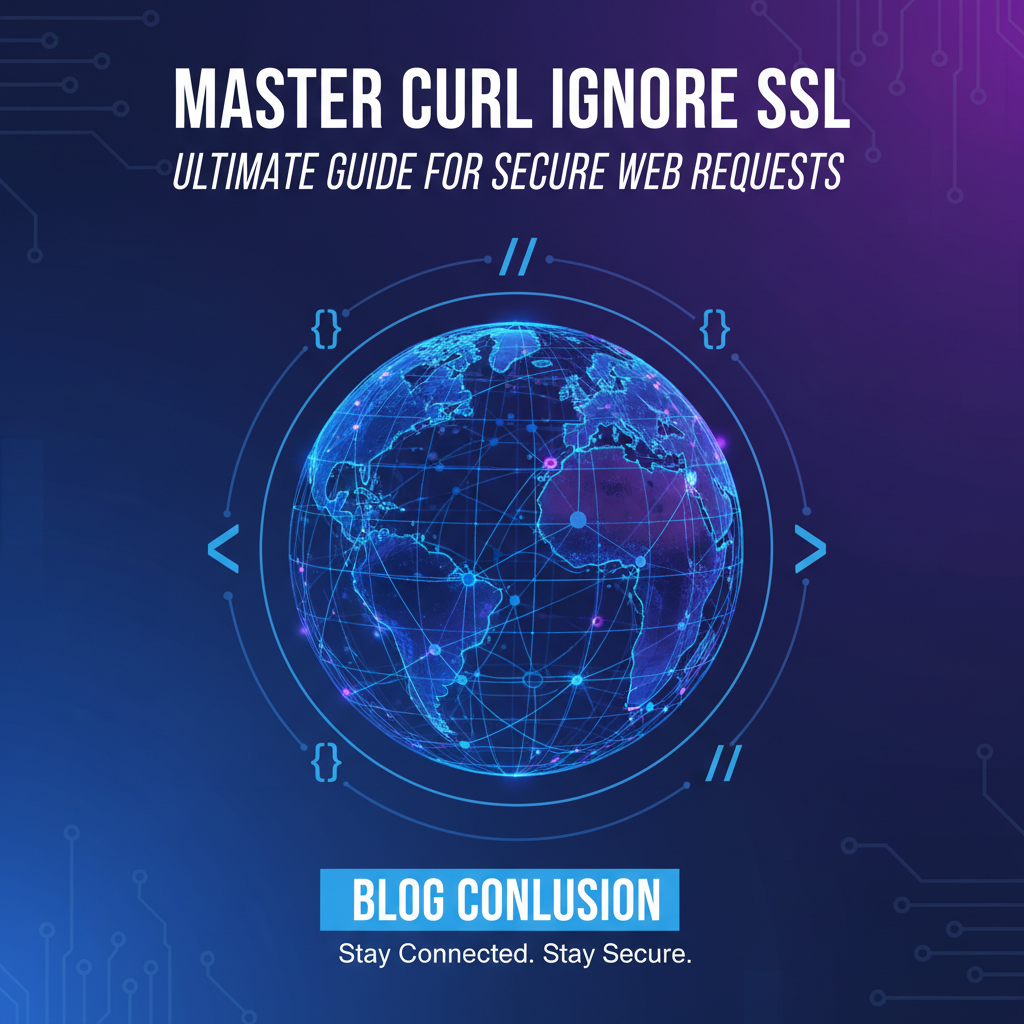Master Curl Ignore SSL: Ultimate Guide for Secure Web Requests

Introduction
In the digital age, secure web requests are paramount for maintaining the integrity and confidentiality of data transmitted over the internet. However, encountering SSL-related issues is not uncommon during web development and API management. This guide will delve into the nuances of using curl, a versatile command-line tool, to make secure web requests while addressing SSL-related concerns, such as ignoring SSL certificates. We will also explore the role of API gateways, OpenAPI, and the Model Context Protocol in enhancing security and efficiency in web requests.
Understanding SSL and Secure Web Requests
What is SSL?
SSL (Secure Sockets Layer) is a protocol that provides secure communication over a computer network. It ensures that the data transmitted between two systems remains confidential and integral. SSL is the predecessor to TLS (Transport Layer Security), which is the current standard for secure communication.
Importance of Secure Web Requests
Secure web requests are crucial for protecting sensitive information, such as personal data, financial transactions, and proprietary business information. They prevent eavesdropping, tampering, and message forgery.
Using Curl to Make Secure Web Requests
Curl Basics
Curl is a command-line tool used for transferring data to or from a server, supporting various protocols, including HTTP, HTTPS, FTP, and more. It is available on most Unix systems and Windows.
Ignoring SSL Certificates
Occasionally, you may encounter situations where the SSL certificate is not valid or you are working with a self-signed certificate. In such cases, you can use the -k or --insecure option with curl to ignore SSL certificate verification.
curl -k https://example.com
or
curl --insecure https://example.com
Ensuring Secure Web Requests
While ignoring SSL certificates can be useful for debugging purposes, it is not recommended for production environments. Instead, you should ensure that you are using valid SSL certificates and configure your system to trust the certificate authority.
API Gateway: A Security and Management Hub
What is an API Gateway?
An API gateway is a server that acts as a single entry point for all API requests to an organization's backend services. It provides a centralized way to manage, authenticate, and route API requests, as well as enforce policies and security measures.
Benefits of API Gateway
- Security: API gateways can enforce authentication and authorization policies, ensuring that only authorized users can access the APIs.
- Rate Limiting: They can limit the number of requests a user can make to an API, preventing abuse and ensuring fair usage.
- Monitoring and Logging: API gateways can monitor API usage and log requests, providing valuable insights into API performance and usage patterns.
APIPark is a high-performance AI gateway that allows you to securely access the most comprehensive LLM APIs globally on the APIPark platform, including OpenAI, Anthropic, Mistral, Llama2, Google Gemini, and more.Try APIPark now! 👇👇👇
OpenAPI: Standardizing API Documentation
What is OpenAPI?
OpenAPI is a standard for describing RESTful APIs. It provides a way to document APIs in a machine-readable format, making it easier for developers to understand and use them.
Benefits of OpenAPI
- Documentation: OpenAPI provides comprehensive documentation for APIs, including endpoints, request/response formats, and security schemes.
- Automation: OpenAPI can be used to automate API testing, deployment, and monitoring.
Model Context Protocol: Enhancing API Interactions
What is the Model Context Protocol?
The Model Context Protocol is a framework for creating and managing context-aware AI models. It allows for the integration of AI models into APIs, enabling more sophisticated and dynamic API interactions.
Benefits of Model Context Protocol
- Contextual API Responses: The protocol allows APIs to respond based on the context of the request, enhancing the user experience.
- Dynamic Model Updates: It supports the dynamic updating of AI models, ensuring that APIs remain up-to-date with the latest technologies.
Implementing APIPark for Secure Web Requests
APIPark is an open-source AI gateway and API management platform that can be used to enhance the security and efficiency of web requests. It offers several features that are beneficial for managing secure web requests:
Key Features of APIPark
- Quick Integration of 100+ AI Models: APIPark allows for the integration of various AI models, simplifying the process of incorporating AI into your APIs.
- Unified API Format for AI Invocation: It standardizes the request data format across all AI models, ensuring compatibility and ease of maintenance.
- Prompt Encapsulation into REST API: Users can create new APIs by combining AI models with custom prompts, such as sentiment analysis or translation.
- End-to-End API Lifecycle Management: APIPark assists with managing the entire lifecycle of APIs, from design to decommissioning.
Getting Started with APIPark
To get started with APIPark, you can deploy it using the following command:
curl -sSO https://download.apipark.com/install/quick-start.sh; bash quick-start.sh
Conclusion
Mastering the art of secure web requests is essential for any web developer or API manager. By understanding the intricacies of SSL, using tools like curl effectively, and leveraging technologies like API gateways, OpenAPI, and the Model Context Protocol, you can ensure that your web requests are secure, efficient, and scalable.
FAQs
Q1: What is the difference between SSL and TLS? A1: SSL (Secure Sockets Layer) and TLS (Transport Layer Security) are both protocols that provide secure communication over a computer network. TLS is the successor to SSL and is considered more secure due to several improvements.
Q2: Why should I use an API gateway? A2: An API gateway provides a centralized way to manage, authenticate, and route API requests. It also enforces security policies, monitors API usage, and can limit the number of requests to prevent abuse.
Q3: What is the Model Context Protocol? A3: The Model Context Protocol is a framework for creating and managing context-aware AI models. It allows for the integration of AI models into APIs, enabling more sophisticated and dynamic API interactions.
Q4: Can I ignore SSL certificates in production? A4: No, it is not recommended to ignore SSL certificates in production. While it can be useful for debugging purposes, using invalid SSL certificates can expose your application to security risks.
Q5: How can APIPark help with secure web requests? A5: APIPark can help with secure web requests by providing features such as quick integration of AI models, unified API format for AI invocation, prompt encapsulation into REST API, and end-to-end API lifecycle management.
🚀You can securely and efficiently call the OpenAI API on APIPark in just two steps:
Step 1: Deploy the APIPark AI gateway in 5 minutes.
APIPark is developed based on Golang, offering strong product performance and low development and maintenance costs. You can deploy APIPark with a single command line.
curl -sSO https://download.apipark.com/install/quick-start.sh; bash quick-start.sh

In my experience, you can see the successful deployment interface within 5 to 10 minutes. Then, you can log in to APIPark using your account.

Step 2: Call the OpenAI API.



